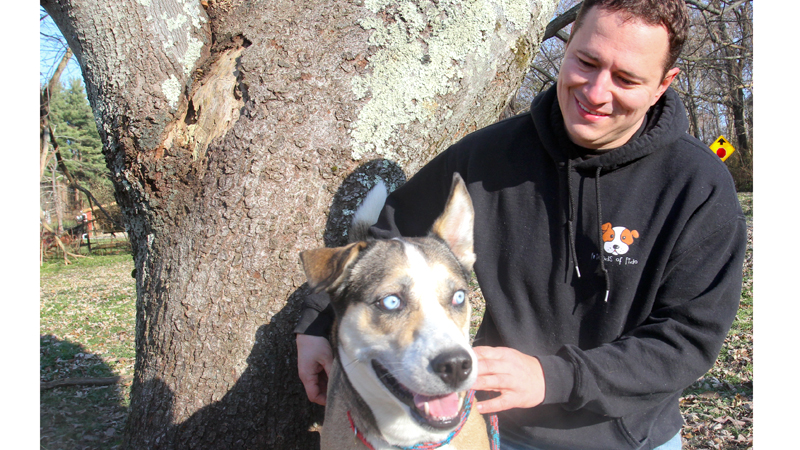Animal advocates ask for more fosters for ‘Do Your Part and Save a Heart’

CANFIELD
Ozzie, a labrador and great dane mix, is one of the 19 formerly heartworm-positive dogs saved so far thanks to “Do Your Part and Save a Heart,” a program that provides treatment.
Jenny Crowe stopped by Angels for Animals on a whim, because she was heartbroken over the loss of her own labrador. She immediately fell in love with Ozzie, a dog saved by the heartworm treatment.
She and her husband adopted him at the beginning of November.
“He is so lovely,” she said. “He is part of our family; he has run of the house.”
Crowe said the fact that her dog had heartworm “wasn’t even a blip on my radar.” She hopes other people aren’t discouraged from adopting dogs from the program.
“Do Your Part and Save a Heart” is operated by Angels for Animals and Friends of Fido, and it helps dogs at the Mahoning County Dog Pound.
Friends of Fido covers the cost of the treatments, and most of the treatments are administered at Angels for Animals. Some are done at local veterinarian clinics.
“This program has been successful. We have saved so many dogs,” said Diane Less, Angels for Animals co-founder.
Heartworm can cause severe lung disease and heart failure, and can lead to death if untreated. Heartworm isn’t contagious among dogs, but is spread through infected mosquitoes.
These organizations, however, need more foster homes to continue their work.
Animal advocate Jason Cooke of Brookfield is currently fostering seven of the dogs.
“If more people could open their homes to help these dogs, we could help more of them,” he said. “It’s very easy to foster these dogs.”
The dogs have to be fostered for 30 days so they can rest after their treatment. They can’t move around too much, because exercise exacerbates the disease.
Cooke said the program provides fosters with everything they need — a dog crate, food, bedding — for the 30-day period.
After the treatment, most of the dogs are taken to Angels for Animals to be put up for adoption. Some go to other regional shelters.
“The best thing that has happened is that not only are the dogs getting out of the pound and getting treatment, but they are also getting adopted,” Cooke said.
Pet owners should give their healthy dogs preventive treatments so they never have to suffer through the disease, Cooke said. Though it’s treatable, it requires deep, painful injections.
Crowe said she hopes the community supports the program.
“They saved Ozzie; he’s such a good boy,” she said. “I know the heartworm treatment isn’t cheap.”
Anyone who wishes to get involved with the program can contact Angels for Animals at 330-549-1111 or Jason Cooke at 234-855-5847.
One of the treated dogs, a husky named Harley, will be up for adoption next week at Angels for Animals, and a Labrador named Rico will be available at Angels on Dec. 18.
 43
43
